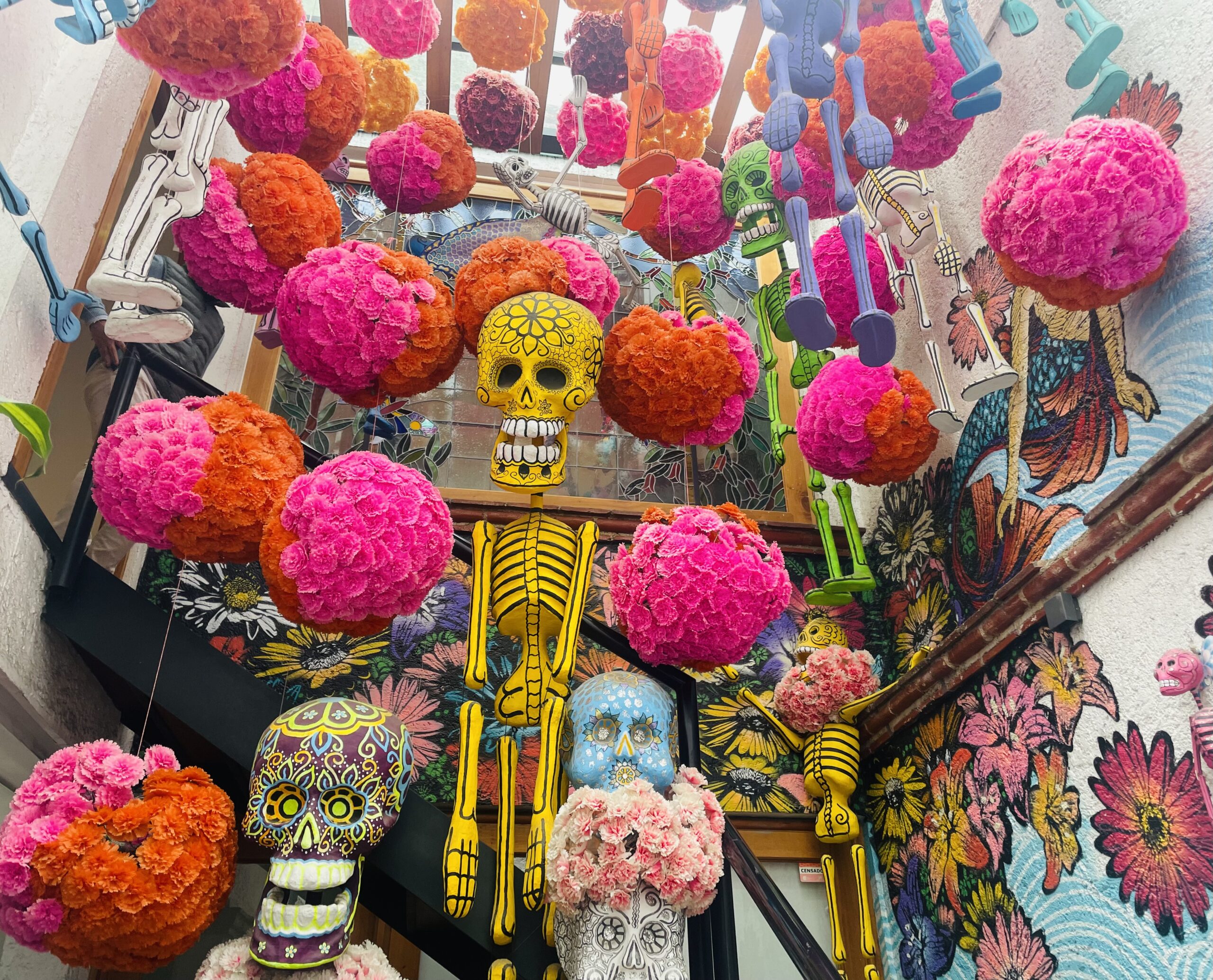Those without a religious affiliation still want ritual and community. A humanist funeral or memorial service can do this for you. It publicly acknowledges the life of a deceased person. As a result, this can help to heal those in mourning.
In general, these non-religious ceremonies emphasize the importance of the individual who passed away. They also allow loved ones to come together to remember and comfort one another. After all, the primary humanist principle declares every life as important. This broad and open-minded worldview allows every ceremony to be as unique as the person who died.
Make It Your Own
As a death doula and celebrant, I often write and lead humanist end-of-life ceremonies. But family and friends play an important part. They guide and approve things every step of the way. We collaborate on the music, poetry, readings, and symbolic gestures. Therefore, this leads to a more meaningful ceremony for everyone.
Other ideas for a humanist funeral or memorial service include:
- Planting flowers or trees
- Lighting candles
- Singing songs
- Toasting as a group in honor of the deceased loved one
Humanist funerals are conducted anywhere. This includes funeral homes, cemeteries, and crematoriums as well as life celebration centers or anywhere the body is interred.
Memorial services are similar but without a body present. So it can be held after the burial or cremation in crematoriums, funeral homes, celebration centers, etc.
Other locations include:
- Home
- Local theatre or community center
- Public garden
- Public, private, city, state, or federal park
- Beach
I’ve also held humanist memorial services at gathering rooms of a favorite restaurant, theme park, or anywhere of relevance to the deceased or their loved ones.
Memorial services are a wonderful way to celebrate the life of someone. It also allows time for people who need to travel to get there. This is in contrast to a funeral, where people usually have to gather immediately to bury or cremate the deceased.
A Typical Schedule
A humanist funeral or memorial service reflects the personality of the person who died and/or the loved ones gathering to remember. So there are no steadfast or strict rules. As a result, this can feel freeing.
However, some honored and reliable traditions provide comfort. They’re automatic. They “think” for grieving mourners who don’t always want to make serious decisions while they’re understandably upset. So this is why I encourage people at end-of-life to make post-death plans themselves. It allows family members to mourn without distraction.
Here’s a sample schedule for a humanist funeral or memorial service:
- Introductory music or picture slideshow
- Welcoming guests and loved ones
- Non-religious thoughts on life and death
- A tribute to the life of the deceased, using stories and anecdotes, from different perspectives (a child, a sibling, a friend, etc.)
- Poetry readings
- Moment of silence to remember, may or may not include background music
- The committal (curtains close, coffin lowers, etc.)
- Final words and music selections

Planning and Attending
If you are planning a ceremony for yourself, gather some things together. As I mentioned above, doing this ahead of time is a wonderful gift to give loved ones. Then they won’t have to guess about what you’d want.
Consider:
- Anecdotes and stories about your life to share
- Selecting poems and readings
- Making a playlist of favorite songs
- Writing the guest list
- Symbolic acts to include
- The tone – solemn, humorous, or a combination?
Do You Want to Attend?
Attending one’s own celebration of life, or hosting a living funeral, is becoming more popular. For example, some people paying for this event also want to enjoy it. They want to hear their loved one’s eulogies. It’s often a wonderful way to commemorate this sacred time at the end of your life.
Once you’ve made your decisions and plans, either write or record your wishes. Then print a copy or email it to loved ones. This is the best way to communicate your wishes and ensure a ceremony that reflects you and your values.
Many humanist funerals take place locally at green cemeteries. For example, an eco-friendly burial goes hand in hand sometimes with a person’s humanist values. Therefore pairing the two is most natural. These are people who do not want their bodies embalmed. They typically choose a natural pine casket or shroud with no metals or plastic. Then they plan a more secular ceremony.
A humanist memorial service often follows a direct cremation. Instead of a casket, the cremains are present, and the service may include scattering or burial.
What is Humanism?
There are many ways to define humanism. It’s a worldview that says there’s only one life. So let’s shape that life in the here and now. Humanists strive to lead good, ethical lives. This approach to living is shared by millions of like-minded people. They value family, community, kindness, and tolerance for the differences in others.
You don’t have to be a humanist to have a humanist ceremony.
This is a good choice for anyone who isn’t religious and yet wants a personal, secular, and welcoming service. Humanist funerals are becoming popular as more people reject organized religion. In fact, 26% of the U.S. population now identify as ‘non-religious’.
That number grows each year.
A benefit of the humanist ceremony is its focus on the deceased. This allows loved ones to participate in meaningful grief rituals even if they don’t belong to a religious community. They can use what works for them. As a result, mourners feel comforted by loved ones and meaningful gestures. This is important in the grieving process no matter our belief system.
Get Started
Let me help you have a meaningful and authentic end-of-life ceremony. If you would like to discuss planning one in Chicago or anywhere, contact me at Anitya Doula Services today.




Recent Comments